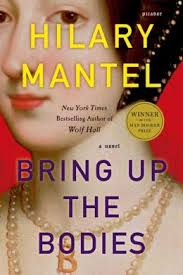When Should You Write a Memoir?
Biff Barnes
When should you write a memoir?
You have just been through unique or dramatic events, overcome apparently overwhelming obstacles, or traveled to exotic places. These are all experiences which might be the stuff of a compelling memoir. Or, maybe friends tell you that you’ve had such an interesting life that others will be fascinated to read about it. All you need to do is get an account of your life into a book and you’ll have a best seller.

Before you start your first draft it might be a good idea to think about a recent comment made by British novelist Hilary Mantel, winner of consecutive Booker Prizes for her novels Wolf Hall and Bringing Up the Bodies set in Henry VIII’s England. Mantel, who in addition to her novels has also written a memoir, was asked for the NY Times Book Review, By the Book feature, “What Makes a Good Memoir?” She said:
“Memoir is not an easy form. It’s not for beginners, which is unfortunate, as it’s where many people do begin. It’s hard for beginners to accept that unmediated truth often sounds unlikely and unconvincing. If other people are to care about your life, art must intervene. The writer has to negotiate with her memories, and with her reader, and find a way, without interrupting the flow, to caution that this cannot be a true record: this is a version, seen from a single viewpoint. But she has to make it as true as she can. Writing a memoir is a process of facing yourself, so you must do it when you are ready.”
 What is a reader likely to be looking for in your memoir? The most important thing, simply put, is understanding and insight about life. What you must understand as a memoirist must understand is that the insight is not about your life but about the reader’s own. How can your account of your experiences help your readers understand themselves better?
What is a reader likely to be looking for in your memoir? The most important thing, simply put, is understanding and insight about life. What you must understand as a memoirist must understand is that the insight is not about your life but about the reader’s own. How can your account of your experiences help your readers understand themselves better?
This is where the art Mantel refers to comes in. A good memoir deals not so much with what happened in the author’s life as with what it means. What lessons does it have to teach others? Perceptions of this sort are the product not of the author’s experiences, but of her reflection upon them. Writing a memoir requires that you apply a mental and emotional Rosetta stone to the events you are recalling in order to decipher the lasting significance of what happened and the universal nature of your story.
Don’t rush to write about your experiences while they are fresh in your mind. A memoirist is often well served by time and distance from events which allows her to strip away some of what seemed so important in the immediacy of the moment to discover the greater truths those events reveal in retrospect.
You should wait to write your memoir until you’ve had sufficient time for reflection in order to understand what your life experiences demonstrate that your reader will find useful in understanding our common human experience.